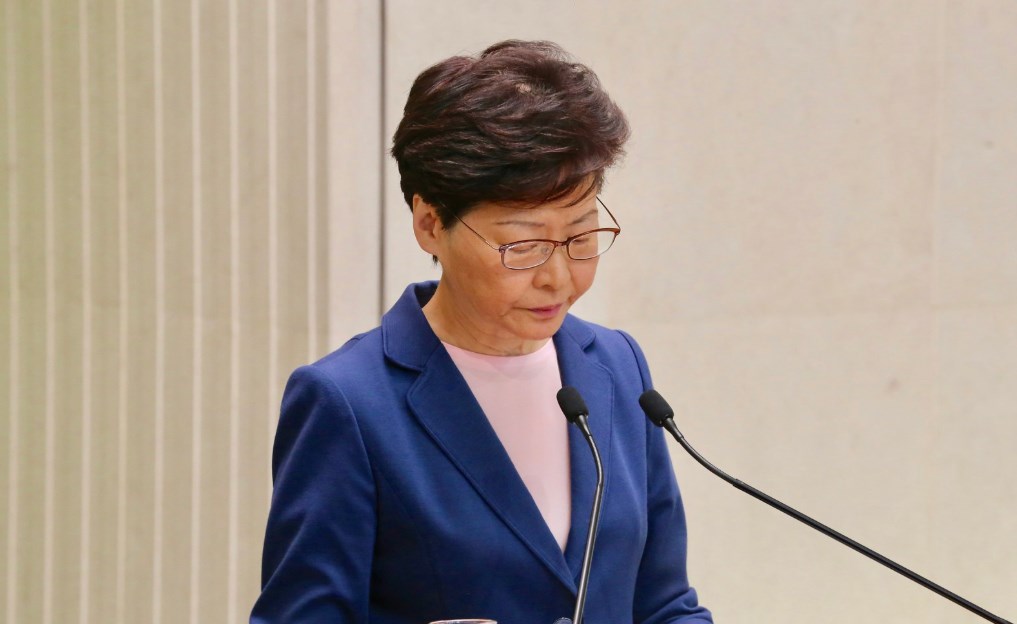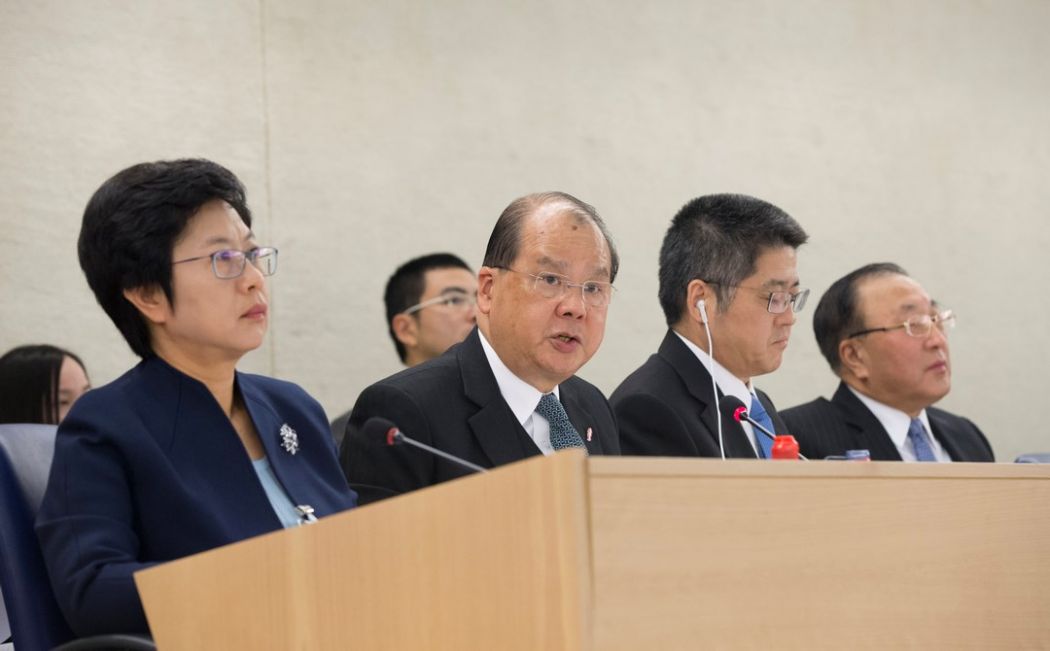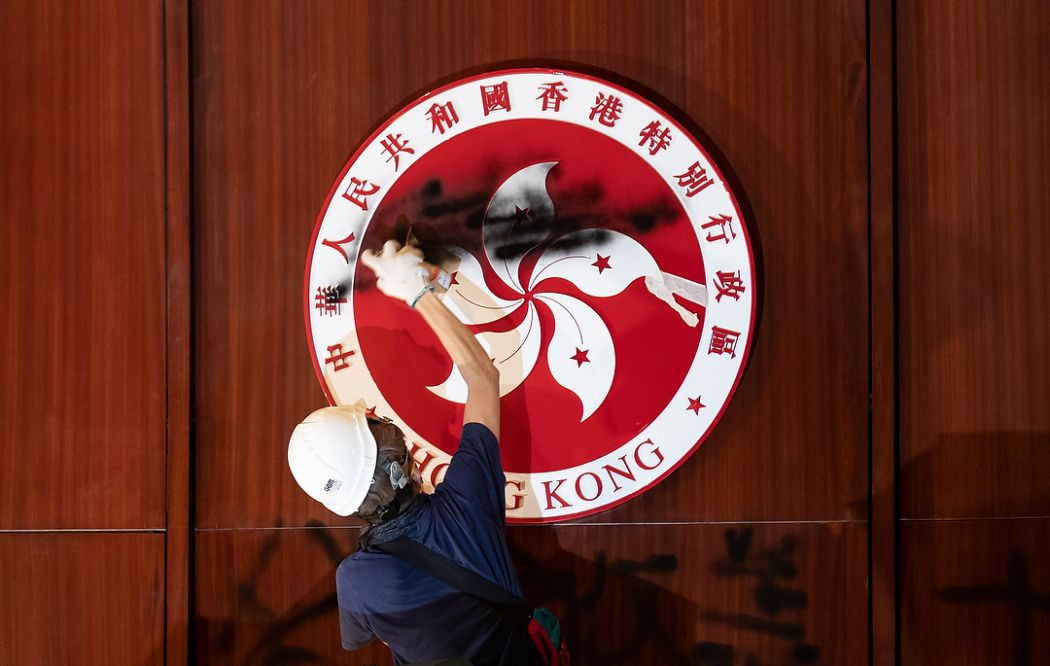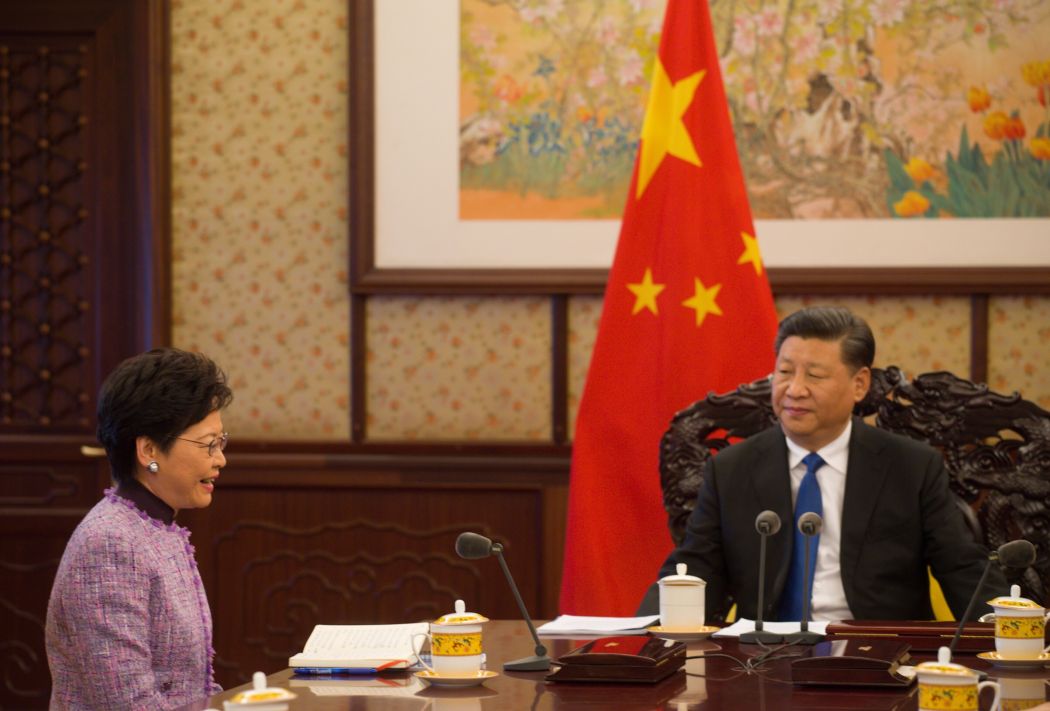Dear Mrs Lam,
I am a Hongkonger who cares deeply about the people and the future of Hong Kong. Your responses to recent developments, in particular, the mass political demonstrations and the alarming rise in violence have propelled me to take the liberty of writing publicly to share what I hope are constructive comments.

‘Violence is not a solution’
In these times of increasingly politicised media, words and language matter more than ever, especially in the context of the central government’s insistence on “correct” thinking and expression. In press remarks following the vicious attacks by triad gangs on people in Yuen Long, you stated: “Violence is not a solution to any problem. Violence will only breed more violence, and at the end of the day, the whole of Hong Kong and the people will suffer as a result of the loss of law and order.”
Yes, it often does. But violence also breeds distrust, anger and fear, which undermine conditions necessary for peaceful and effective solutions to any complex problem. A more effective and principled starting point is the responsibility of the HKSAR Government under its international obligations to prevent state-sanctioned violence, to prevent violence by non-state actors, and to protect the population.
The UN Human Rights Committee in its April 2013 Concluding Observations report of Hong Kong’s implementation of the International Covenant on Civil and Political Rights, expressed several points that remain of urgent relevance today:
- Excessive use of force: its “concern about reports of excessive use of force by members of the police force, not compatible with the United Nations Principles on the Use of Force and Firearms by Law Enforcement Officials, in particular by the inappropriate use of pepper spray to break up demonstrations to restore order, notably with regard to demonstrations surrounding the annual Hong Kong march on 1 July 2011, the visits of Vice-Premier and President of China, respectively in August 2011 and July 2012.” (Emphasis added).
- Recommendation for [the] training of police: “Hong Kong, China, should increase its efforts to provide training to the police with regard to the principle of proportionality when using force, taking due account of the United Nations Principles on the Use of Force and Firearms by Law Enforcement Officials.”
- Need for an independent investigation of police misconduct: The Committee stated it “remains concerned that investigations of police misconduct are still carried out by the police themselves through the Complaints Against Police Office (CAPO) and that IPCC has only advisory and oversight functions to monitor and review the activities of the CAPO and that the members of IPCC are appointed by the Chief Executive.” It recommended that “Hong Kong, China, should take necessary measures to establish a fully independent mechanism mandated to conduct independent, proper and effective investigation into complaints about the inappropriate use of force or other abuse of power by the police and empowered to formulate binding decisions in respect of investigations conducted and findings regarding such complaints.” (Emphasis added).
The current demands of the demonstrators for an independent investigation of reported incidents of police misconduct in fact reflect the concern of the Human Rights Committee of independent experts regarding Hong Kong’s Independent Police Complaint Council (IPCC) and the need for police training in accordance with international standards.

On January 12, 2018, the HKSAR government held a one-day public consultation to seek views of members of the public on the implementation of the ICCPR regarding topics to be included in the fourth ICCPR report of the HKSAR to the Human Rights Committee. However, a follow-up robust and inclusive public consultation to inform the now overdue ICCPR progress report would not only be a constructive opportunity to fully respond to the concerns and recommendations issued by the Human Rights Committee but also to address related serious developments, including reports of increasing violence by state and non-state actors.
Compliance by the HKSAR government with international standards and its international law obligations will ensure that maintaining “order” is not a facade for social control and that “law” in Hong Kong means rule of law as defined by international rule of law standards, and not the “governing according law” approach of the central government.
In the current situation of social unrest and ongoing arrests, it would also be incumbent upon officials, including yourself as the Chief Executive, to be cautious of characterising facts in ways that undermine a fair and objective process for addressing these incidents according to a rule of law. For example, in your statement of concern over the defacing of the Central Liaison Office, you stated: “[t]he Special Administrative Region government must strongly condemn some of the radical demonstrators who maliciously surrounded and assaulted Beijing’s liaison office. They even defaced the national emblem. They openly challenged [China’s] sovereignty, tested the limits of One Country, Two Systems, and hurt the nation’s feelings.”

It is inappropriate for the Chief Executive to make characterisations about the intentions of individuals or groups challenging the actions of the government and, even more seriously, to make conclusions about challenges to China’s sovereignty. These politicised statements undermine respect for an independent and fair rule of law.
‘Hurt the nation’s feelings’
A nation can refer either to the territory under a government or state’s control, or the people who inhabit that territory, who often share a common language, history, and culture. Your use of the phrase “hurt the nation’s feelings” is a concerning echo of the central government’s defensive locution in response to any comments or acts it perceives as critical. “You have hurt the feelings of the Chinese people” is a defence the Party-state regularly invokes to silence others, obfuscate the truth, and intimidate. But this Party locution conflates the “nation” and the “Chinese people” with the Chinese Communist Party (CCP), with the CCP deciding whatever it deems harmful or a threat to it is harmful and a threat to China. In addition, how can we even know the feelings of the “Chinese people” when opinions and expression are comprehensively monitored and often criminalised under the information control regime on the mainland?

If you really care about hurt feelings of the people, perhaps you can focus on the sense of betrayal, uncertainty, and fear expressed by millions of peaceful demonstrators, the physical and mental health of traumatised victims of police and triad violence, or the lifelong pain and loss facing families of the five individuals driven to suicide. I may be in error, but I do not believe you have publicly expressed any meaningful condolences to the families for these tragic deaths, which would be the minimal decent human gesture to make, even if belatedly.
I want to conclude by recognising your decades of service to Hong Kong and that you are now in an extremely challenging position. However, you have also clearly and publicly stated: “[i]f mainstream opinion makes me no longer able to continue the job as chief executive, I’ll resign.” If you insist on not resigning – even as millions of Hong Kongers continue to demand your resignation – I respectfully suggest you carry on your obligations in service first and foremost to the Hong Kong people, and not to continue to be complicit in carrying out an authoritarian agenda that tramples the autonomy and freedoms promised under One Country Two Systems. If not to your own conscience, you will be held accountable by history. It’s a tough job, but that’s what you signed up for.
Respectfully, Sharon Hom.
If you are experiencing negative feelings, please call: The Samaritans 2896 0000 (24-hour, multilingual), Suicide Prevention Centre 2382 0000 or the Social Welfare Department 2343 2255. The Hong Kong Society of Counselling and Psychology provides a WhatsApp hotline in English and Chinese: 6218 1084. See also: HKFP’s comprehensive guide to mental health services in Hong Kong
